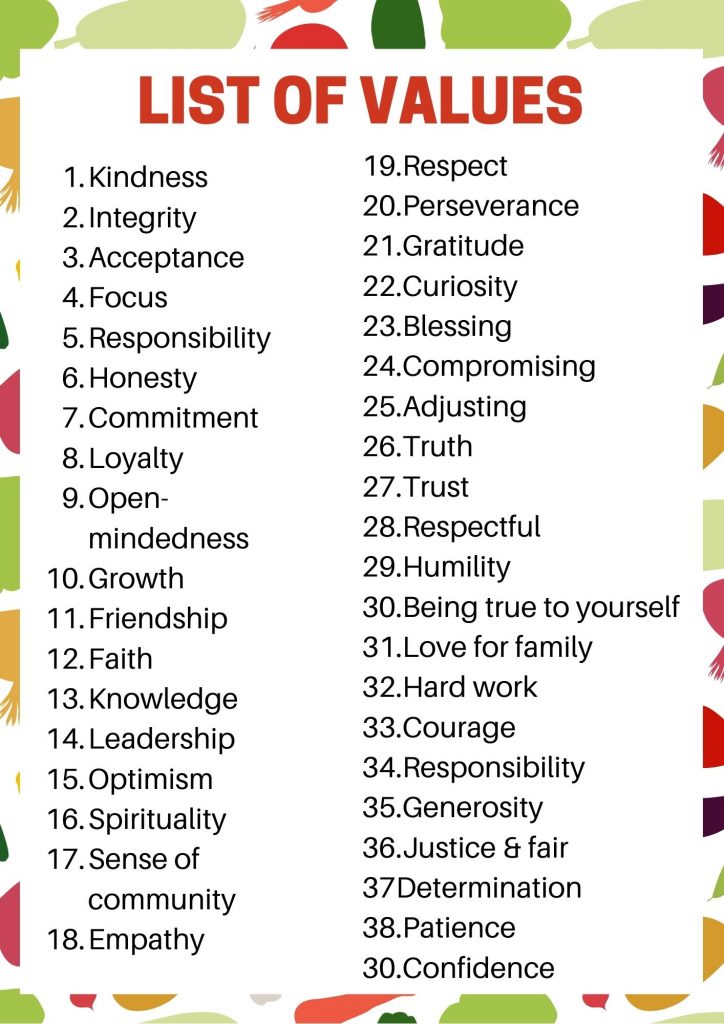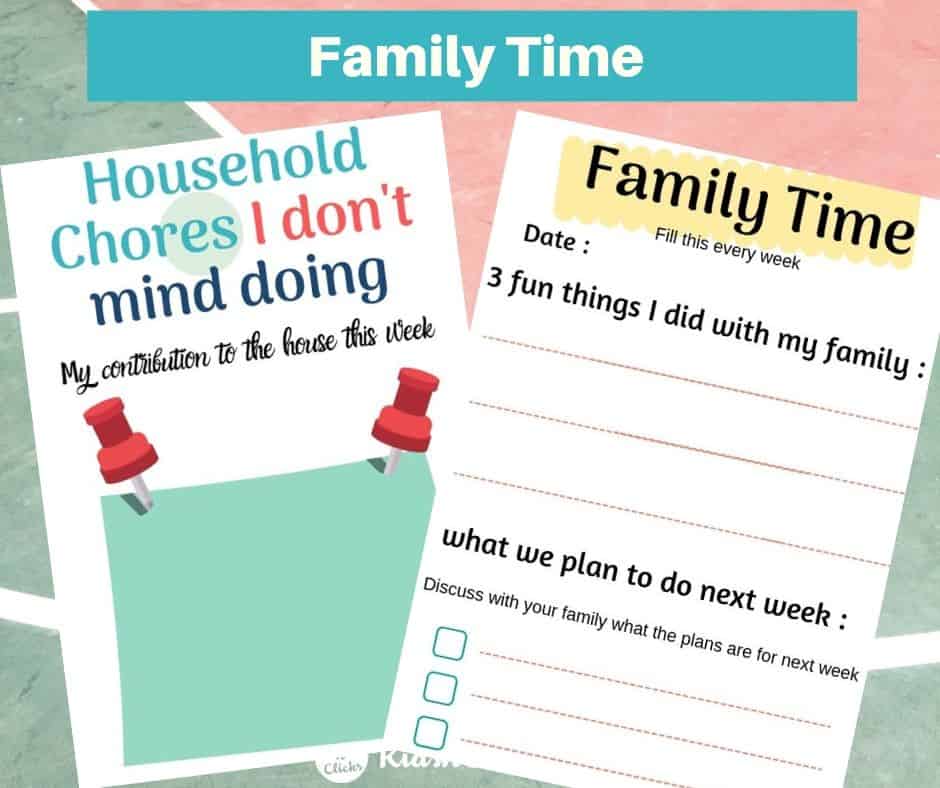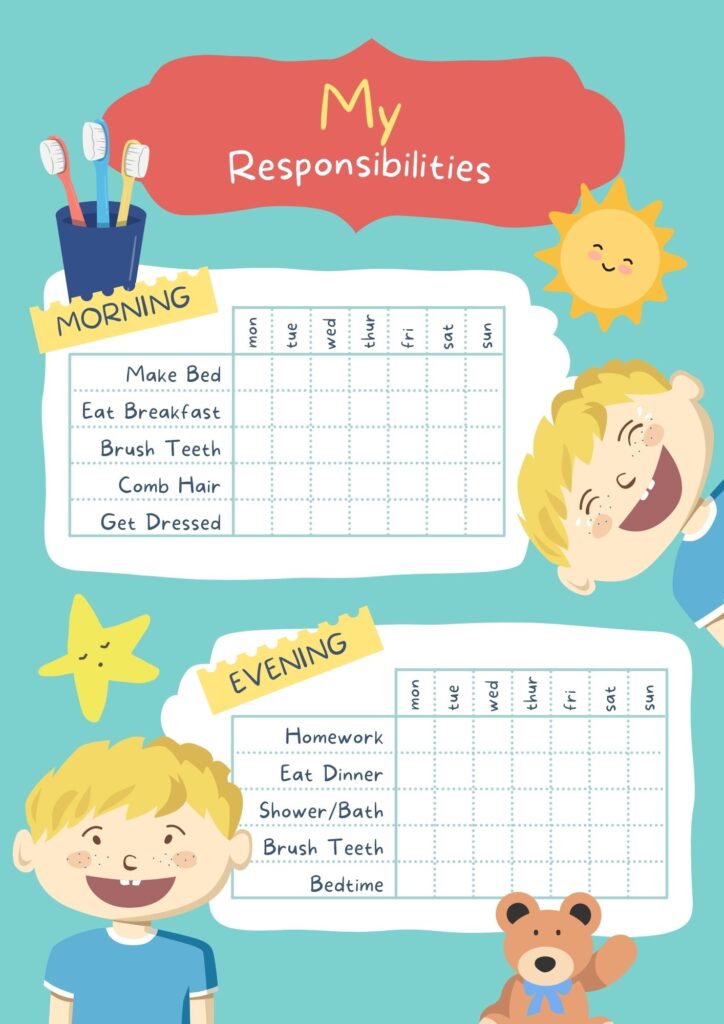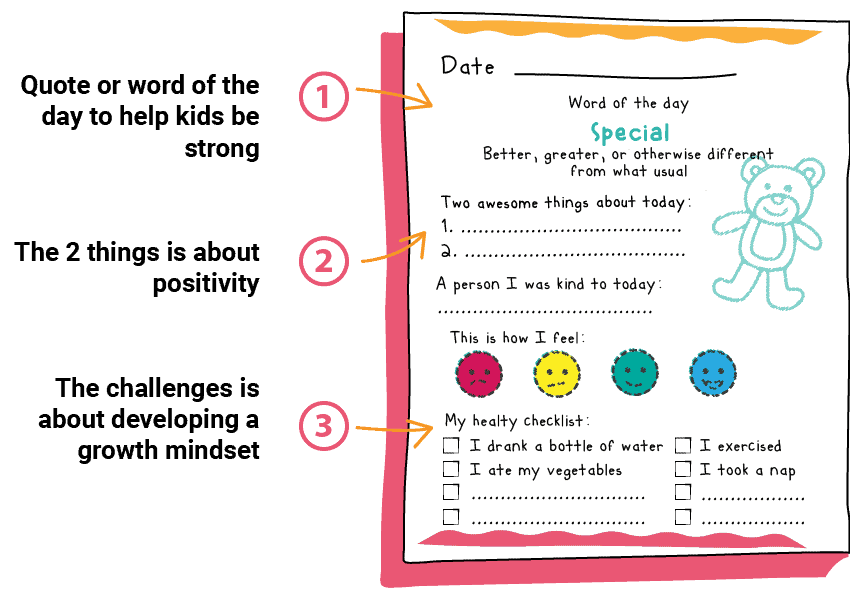Ever wondered about the guiding principles that help superheroes make important decisions? Just like them, we all have our own list of values that guide us in everyday life.
From the common values shared by many to the unique list of values that make you special, this fun guide will help children discover the magic of good judgment, the importance of strong relationships, and the adventure of personal development.
Before going into detail on the different list of values that are important in life, let us first try to understand what values mean.
What are values?
When being asked the question, what are your values? You first need to know the meaning of values.
Values are things you perceive as important in the way you live your life.
They are your inner guidance that keeps you true to your path.
Everyone has different set of values, there is no right or wrong.
It all just depends on what is important to you.
Majority of the time, the values that we have are those that have been passed down to us by our parents.
They are the list of values are parents think is important to teach us so we can live a fulfilling life.
As we progress through different stages in life our list of values may change as we have different priorities then.
The list of values that you use tend to determine if you are living life the way you want too.
As a parent it is important to nurture our children with a set values that will enable them to become kind human beings.
The importance of moral values :
Parenting involves taking care of our children physical and mental needs. It is about empowering children to become the best version of themselves.
Parents play a crucial role in shaping children’s behaviour and character.
Part of this process involves teaching them about moral values that they can carry with them until they are old.
We cannot expect our children to do good in life if we do not teach them moral values. This does not come naturally but rather ingrained in them from a young age.
As your child grows up and goes through different experiences in life their moral values or priorities may change.
However, a strong foundation of positive values will most likely continue being with them even as an adult
List of values for kids:
- Kindness
- Integrity
- Acceptance
- Focus
- Responsibility
- Honesty
- Commitment
- Loyalty
- Open-mindedness
- Growth
- Friendship
- Faith
- Knowledge
- Leadership
- Optimism
- Spirituality
- Sense of community
- Empathy
- Respect
- Perseverance
- Gratitude
- Curiosity
- Blessing
- Compromising
- Adjusting
- Truth
- Trust
- Respectful
- Humility
- Being true to yourself
- Love for family
- Hard work
- Courage
- Responsibility
- Generosity
- Justice & fair
- Determination
- Patience
- Confidence
- Politeness

8 list of values and morals:
1. Kindness
There are different ways to teach children kindness. At the top of it is to model empathy to our children.
We are the greatest role models to our children. We can show them what kindness means and how it makes other people feel. For example, by volunteering and getting children involved in it.
Kindness can also start from home. For example, when children see how daddy is helping mommy out at home or getting children to help out house hold chores.

The important thing is to remind children what they are doing is kind and thank them for their kindness.
With younger children can teach them the idea of sharing. For example, getting children to share their toys with other children. Then thanking them for sharing and reminding them how kind they are and how happy it makes you feel.
Teach your child to comfort a friend who is upset in school and stand up for bullies.
Or even organize a toy or book exchange with friends. Emphasize the joy of giving and how it can bring peace of mind.
Dont forget….THE GROWTH MINDSET KIT to encourage children to share kindness with others

With children now spending more time online, teaching kindness should also be incorporated into the digital world.
For example, reminding children to always post positive things and say nice things online. Reminding your child that what they write or post can affect others and it is important to be kind even online.
If you think your child is not being kind then talk to them nicely rather than talking down at them. Be empathatic and let your child share his/her reasons for behaving a certain way.
Then explain to your child how their behaviour may have hurt someone else’s feelings.
Show respect to your child and your child will learn to do the same.
2. Respect
Children should not be taught to just respect elders. They should be taught to be respectful to everyone, even people younger than them.
Remind your child that all human beings regardless of age, race, social status, disability should be respected.
It is one of the most important thing to teach your child from all the list of values above.
By teaching your child respect that enable them to communicate their feelings effectively and take responsibility of their actions.
Teaching respect is also about teaching children to be a good listener. Giving others the chance to speak out and paying attention to what they are saying.

With children having devices at a young age, children should be taught to respect another person by looking them in the eye when they are speaking and not their devices.
Many times children do not understand that this simple gesture is a sign of respect. It is signalling to others that you care about what they have to say.
We must also let children know that respect cannot be forced. By modelling good behaviour only will they be able to earn the respect of others.
As parents we must also respect our children. Many times we go into the mode of yelling at our kids out of frustration.
By doing so we are not doing any good, rather disrespecting them.
Instead we should bend down to their level and speak to them about how we feel.
To teach respect we first need to stay calm and be in control of our own emotions.
Related : How to stop screaming at your kids and earn their respect
3. Patience
This is not something that comes naturally for children. It can even be very challenging to teach them the concept of patience.
However, it is important to teach children about patience as it will help them with self-control and how to stay calm.
One way to teach this to younger children is by not giving them what they want instantly.
For example, when giving a child a new toy, get them to unwrap it then throw all the wrappers in the dustbin. Once the mess is clear they can then play with the toy.

When going out shopping, ask your child to queue in line.
Teach your child different meditating and breathing techniques to help them stay calm.
This is useful when a child is feeling frustrated. Get them to be mindful about their feelings
Don’t forget Use the growth mindset kit below to help children recognize their potential

4. Self-confidence
This is one of the most important values to teach your child among all the list of values above.
A child with high-esteem will have better chances of being successful in life.
Let them know how much you value them and their opinion.
Be positive when you are with your child and encourage them to not be afraid to chase their dreams.

Encourage them write down their goals and also state some of the things they are too afraid to try.
You can use the growth mindset kit below to help boost your child’s confidence by reminding them how talented they are.
5. Love For Family
Family is important in shaping a child’s values. It nurtures their behavior and shapes their character.
It is important to teach children what it means to have a family and why it is important.
Using the activities below you can help children grow up to respect their family and love them unconditionally.

6. Honesty & trust
This is an important value to teach children.
Trust and honesty should be taught from a young age.
When your children have started speaking, start teaching them about the concept of truth.
For example, if your child said he has not had any candies during the day but you know he/she has had it, then tell them to be honest.
Then appreciate their honesty and reward them for it. Tell he/she how proud of you are of their behavior.
Model truth and honesty with your child. Do not lie to your child.
For example, many times we tell our child if they do something you want them to do you will reward them. But many times we do forget about the reward and tell them they will get it next time.
By doing that we are building wrong expectations for our child and we are telling them it is ok to lie.
Follow through any promises that you tell your child.
There are also books that you can teach children about honesty. For example “Tales of Peter Rabbit” by Beatrix Potter.
Game to play to teach honesty: Play the “Truth or Tale” game. Share a mix of true personal experiences and fictional tales. Let your child guess which ones are real and which ones are made up.
Here is an example of a fictional tale you can share with your child to teach them honesty:
Once upon a time, in a quaint village nestled between two mountains, there was a magical tree known as the Whispering Willow. Every year, the tree bore a single golden apple, said to grant a single wish to the one who consumed it.

The golden apple was a treasure, and every child in the village dreamt of tasting it.
Little Lila, a spirited girl with raven-black hair and twinkling blue eyes, was no different. She had heard tales of the golden apple from her grandmother and dreamt of the endless possibilities a wish could bring.
One sunny morning, as Lila was playing near the Whispering Willow, she noticed something shimmering between its leaves.
To her astonishment, it was the golden apple! Without a second thought, she plucked it and hid it in her basket, her heart racing with excitement.

As she made her way home, she met her best friend, Timmy. “Look what I found!” she whispered, showing him the apple. Timmy’s eyes widened in surprise. “You should tell the village elders,” he said. “They usually pick the apple in a grand ceremony and give it to one deserving child.”
Lila hesitated. She wanted to taste the apple and make her wish. But she also remembered her grandmother’s words, “Honesty is the true magic. It’s more powerful than any wish.”
Taking a deep breath, Lila decided to do the right thing. She went to the village square and presented the apple to the elders. They were surprised and pleased with her honesty. “For your truthfulness,” the head elder said, “you shall be the one to taste the golden apple this year.”
Lila was overjoyed. She took a bite, and as the sweet juice trickled down, she made her wish. To her surprise, instead of toys or candies, she wished that the Whispering Willow would bear more golden apples, so every child in the village could have a wish.
The next year, the tree bore dozens of golden apples, and every child’s dream came true. Lila’s honesty had brought joy to the entire village.

And so, children learned that while wishes can bring happiness, it’s honesty that brings true magic and joy to the world.
Discuss the importance of telling the truth and how it builds trust in personal relationships.
Dont forget….THE GROWTH MINDSET KIT aims at helping children realize how special they are

7. Compromising
Compromising is an important value to teach our child.
It is about letting them know that not everything will go according to their way.
This will prepare them for a future where they will need to learn to adjust and compromise on their plans.
It is an important skill that will teach them the importance to be flexible. They will use this skill when deciding on a career, marriage, job and many more.
8. Justice and fair
Encourage your child to speak up when they see someone is being treated unfairly.
This can even apply in the digital world. For example, if your child sees a friend being cyberbullied they need to be taught how to report that person and defend their friend.

Also, teach your child about treating everyone equally and fairly. Remind them no one should be discriminated and everyone has the same rights.
9. Empathy: Walking in Someone Else’s Shoes
Read stories or watch movies that depict different values and life experiences. Discuss the characters’ feelings and ask the following questions: “How would you feel in that situation?” or “What would you do differently?” This fosters emotional health and a positive attitude.
Movies that teaches empathy

Here’s a list of movies that teaches empathy to children :
Inside Out (2015)
- Synopsis: This animated film delves into the emotions of a young girl named Riley as she navigates a big move and changes in her life. It’s a wonderful exploration of feelings and understanding others’ emotions.
Wonder (2017)
- Synopsis: Based on the bestselling book, this film follows a boy with facial differences as he starts public school for the first time. It’s a touching story about acceptance and understanding.
Charlotte’s Web (2006)
- Synopsis: This adaptation of E.B. White’s novel is about the friendship between a pig named Wilbur and a spider named Charlotte. It teaches children about sacrifice, love, and understanding.
Coco (2017)
- Synopsis: A young boy named Miguel embarks on a journey to the Land of the Dead to discover his family’s history. The movie touches on themes of family, understanding, and remembering loved ones.
The Little Prince (2015)
- Synopsis: Based on the beloved book, this animated film tells the story of a young girl who learns about life, love, and understanding from her elderly neighbor and his tales of the Little Prince.
Other values to teach children
10. Responsibility: Owning Your Actions
Assign small things or tasks in daily life, like watering plants or feeding pets. Celebrate when they remember their tasks, emphasizing the importance of taking responsibility for one’s own life.

11. Curiosity: The Desire to Learn and Grow
How to Teach: Encourage new experiences. Visit a museum, take a nature walk, or try a new hobby together. Discuss the importance of personal growth and how life changes with every new experience.
12. Resilience: Bouncing Back in the Face of Obstacles
How to Teach: Share stories from your past experiences, both good and bad. Discuss how you overcame difficult times and the importance of a positive outlook.
13. Gratitude: Appreciating the Small Things
How to Teach: Start a gratitude journal. Every night, jot down three things you’re thankful for. Discuss how this simple step can lead to positive emotions and better mental health.

14. Integrity: Doing the Right Thing
How to Teach: Set up a “moral dilemma” scenario. For instance, “What would you do if you found money on the playground?” Discuss the importance of doing the right thing, even when no one is watching.
Here’s some moral dilemmas you can discuss with your child :
- Lost Money
- Scenario: You find a $10 bill on the playground. Do you keep it, or do you try to find the person who lost it?
- Classmate’s Secret
- Scenario: A friend tells you a secret but asks you not to tell anyone. Later, you realize that sharing the secret might help your friend. Do you keep the secret or tell an adult?
- Broken Toy
- Scenario: You accidentally break a toy that belongs to your sibling or friend. Do you hide it and say nothing, or do you confess and apologize?
- Found Homework
- Scenario: You find a classmate’s completed homework on the floor. Do you copy the answers for yourself or return it without looking?
- Stray Animal
- Scenario: You find a lost puppy on your way home. Do you keep it because you love it, or do you try to find its owner?
- Lying to Protect Feelings
- Scenario: Your friend gives you a handmade gift that you don’t really like. Do you pretend to like it to make your friend happy, or do you tell the truth?
- Taking Blame
- Scenario: Your friend does something wrong at school, and you’re the only one who saw it. When the teacher asks if you know who did it, do you cover for your friend or tell the truth?
- Sharing Rewards
- Scenario: You and a friend work on a project, but you did most of the work. When you both get a reward, do you keep it because you did more work, or do you share it equally?
- Inclusion
- Scenario: You’re playing a game with your friends, and another child wants to join, but your friends don’t want to include them. Do you let the child play or go along with your friends?
- Lost Library Book
- Scenario: You lose a library book and can’t find it. Do you tell the librarian and offer to replace it, or do you hope they don’t notice?
These dilemmas can help children develop critical thinking skills, understand the complexities of right and wrong, and foster empathy and understanding towards others. It’s essential to create a safe space for discussion, allowing children to express their thoughts and feelings without judgment.
Other ways of teaching children the list of values above:
1. Be a good role model
Children learn by modeling their parents. If you want your child to have good values then you need to practice what you preach.
Show them how you incorporate those values into your daily lives and remind them why they are important.
2. Share your own experiences
Children can relate to stories. Talk to them about your own experiences.
For example, if you have faced bullying when growing up then share that experience with your child. Tell them how you stood up against those bullies or who helped you.
By sharing your own experience you are making the values relatable for your child. It will help them understand better why those values matter.
3. Reward
When you reward good behaviour, your reinforcing positive behaviour.
Come up with a system where you reward your child for doing a good deed.
Don’t forget to praise them for doing something nice.
Don’t forget to check out the Growth mindset activities kit

4. Regular communication
Talk to your child regularly and check in with their feelings.
Don’t just ask children “how was your day?” rather be specific about what you ask them.
For example, did anything happen today that made you upset? Was someone kind to you today? What made you laugh today? and more.
Related : Questions to ask your child instead of “how was your day?”
Use case studies with your child. For example, if you read something in the newspaper then ask your child about their opinion or what they may have done.
5. Finally, know what your child is doing on their devices.
Values are the guiding principles that shape our decisions in everyday life. They are the fundamental beliefs that give us a sense of belonging and purpose.
By instilling these values in our children, we ensure they have the tools to make better decisions, build strong relationships, and lead a fulfilling life.
Spend some time to know who your child follows on social media, Youtube channels they follow, news feed information they get, and social media apps they use may shape their values.
It is possible that you spend 15 years shaping those values in them. But, a few hours on the internet may diminish all of that hard work if you are involved in their digital world.
Ensure that what they do online is age-appropriate. Show them positive things online and teach them how to use the internet responsibly.
Before you go, don’t forget to check out the PERSONALISED growth-mindset kit you can use at home
Was this helpful?
Good job! Please give your positive feedback
How could we improve this post? Please Help us.



